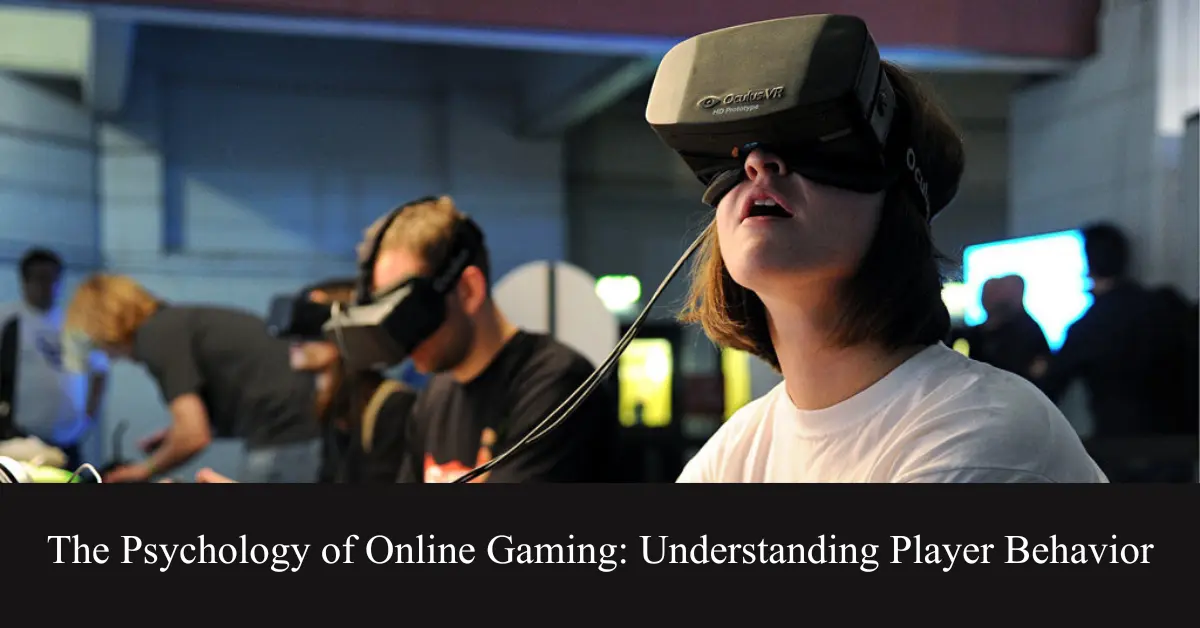
The Psychology of Online Gaming: Understanding Player Behavior
In the vast landscape of online gaming, there lies a complex interplay of human behavior, motivations, and interactions. Understanding the psyche of players is paramount for developers, researchers, and enthusiasts alike. As we delve into the depths of online gaming psychology, we uncover intriguing insights into what drives players, how they engage with virtual worlds, and the impact of their actions.
What Drives Online Gamers?
Intrinsic Motivation
Intrinsic motivation fuels players’ desires to explore, achieve, and master challenges within the game world. The satisfaction of overcoming obstacles and the joy of self-improvement drive them forward.
Extrinsic Rewards
From leveling up to earning virtual currency, extrinsic rewards provide tangible incentives for players to progress. Skins, loot, and achievements serve as markers of accomplishment, enhancing the gaming experience.
Social Interaction
Human connection lies at the heart of link slot online gaming. Whether teaming up with friends or forging alliances with strangers, the social element adds depth and richness to the gaming experience.
The Role of Psychology
Behavioral Psychology
Behavioral psychology elucidates the patterns and reinforcements that shape player actions. From conditioning to habit formation, understanding these mechanisms is crucial for designing compelling gameplay.
Cognitive Psychology
Cognitive psychology delves into the mental processes underlying decision-making, problem-solving, and attention. Game designers leverage cognitive principles to craft engaging challenges and puzzles.
Understanding Player Types
Achievers
Achievers thrive on competition and seek to conquer challenges. They relish in completing quests, obtaining rare items, and climbing leaderboards.
Explorers
Explorers are driven by curiosity and the desire for discovery. They revel in uncovering hidden secrets, exploring vast landscapes, and unraveling lore.
Socializers
Socializers prioritize human connections and thrive in cooperative environments. They enjoy forming bonds, engaging in conversations, and participating in group activities.
Killers
Killers are driven by dominance and seek to assert power over others. They derive satisfaction from outsmarting opponents, engaging in player versus player combat, and causing chaos.
Motivation and Engagement
Rewards Systems
Effective rewards systems provide players with clear goals and meaningful incentives. From experience points to in-game currency, rewards motivate players to persist and excel.
Progression Loops
Progression loops offer a continuous stream of challenges and rewards, keeping players engaged over the long term. From daily quests to seasonal events, these loops sustain interest and momentum.
Addiction and Compulsion
The Allure of Achievement
The pursuit of achievements, accolades, and recognition can become all-consuming for some players. The dopamine rush of success can lead to compulsive gameplay and addictive behaviors.
Escapism and Coping Mechanisms
For many players, slot online gaming serves as a form of escapism from real-world stressors and challenges. Immersed in virtual worlds, they find solace, distraction, and temporary relief from life’s pressures.
The Impact of Design
User Interface and Experience
A seamless user interface and intuitive design enhance player immersion and enjoyment. Streamlined controls, responsive feedback, and immersive visuals contribute to a positive gaming experience.
Game Mechanics
Well-crafted game mechanics provide depth, complexity, and replayability. From crafting systems to skill trees, these mechanics offer players meaningful choices and strategic opportunities.
Community Dynamics
Guilds and Clans
Guilds and clans foster a sense of belonging and camaraderie among players. They provide support, camaraderie, and opportunities for collaboration and teamwork.
Player-Driven Economies
In virtual economies, players trade, barter, and compete for resources and wealth. The dynamics of supply and demand, inflation, and scarcity mirror real-world economic principles.
The Dark Side of Online Gaming
Toxic Behavior
Toxic behavior, including harassment, trolling, and griefing, can poison gaming communities. It undermines trust, fosters hostility, and drives away players.
Cyberbullying
Cyberbullying in online games can have devastating effects on victims’ mental health and well-being. Developers must implement robust moderation tools and community guidelines to combat this scourge.
Gaming Disorder
For a small subset of players, gaming can spiral into addiction and compulsive behavior. Gaming disorder, characterized by impaired control and prioritization of gaming over other life activities, requires intervention and support.
Ethical Considerations
Responsibility of Developers
Game developers have a duty to prioritize player well-being and safety. They must design games ethically, foster positive communities, and provide resources for players in need.
Player Well-being Initiatives
From mental health resources to moderation tools, developers are implementing a range of initiatives to promote player well-being. Awareness campaigns, support hotlines, and in-game prompts raise awareness and offer assistance.
Tips for Healthy Gaming
Setting Boundaries
Establishing clear boundaries and limits on gaming time promotes balance and prevents excessive gameplay. Encouraging breaks, physical activity, and social interactions outside of gaming is essential for overall well-being.
Balancing Gaming with Other Activities
Encouraging a diverse range of interests and hobbies outside of gaming cultivates a healthy lifestyle. From outdoor activities to creative pursuits, finding balance enriches life beyond the screen.
Case Studies
Success Stories
Success stories highlight the positive impact of gaming on individuals’ lives. From fostering friendships to developing skills, gaming can be a force for good in the world.
Cautionary Tales
Cautionary tales serve as reminders of the potential pitfalls of excessive gaming. From neglecting responsibilities to sacrificing relationships, these stories underscore the importance of moderation and self-awareness.
Future Trends
Virtual Reality Integration
Virtual reality promises to revolutionize the gaming experience, immersing players in lifelike worlds and expanding the possibilities of interaction and exploration.
Artificial Intelligence in Gaming
Artificial intelligence is transforming game design, enabling dynamic storytelling, adaptive gameplay, and lifelike NPC behavior. As AI continues to evolve, games will become more immersive and personalized.
Conclusion
The psychology of online gaming is a multifaceted field that intersects with disciplines ranging from psychology to economics. By understanding player behavior, motivations, and interactions, we can create more engaging, inclusive, and ethical gaming experiences for all.
